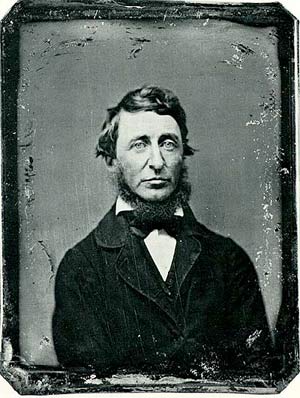A Project in Cooperation with the Thoreau Society.
The Thoreau Reader - Annotated works of Henry David Thoreau
While Walden can be applied to almost anyone's life, "Civil Disobedience" is like a venerated architectural landmark: it is preserved and admired, and sometimes visited, but for most of us there are not many occasions when it can actually be used.
Still, although seldom mentioned without references to Gandhi or King, "Civil Disobedience" has more history than many suspect.
In the 1940's it was read by the Danish resistance, in the 1950's it was cherished by those who opposed McCarthyism, in the 1960's it was influential in the struggle against South African apartheid, and in the 1970's it was discovered by a new generation of anti-war activists. The lesson learned from all this experience is that Thoreau's ideas really do work, just as he imagined they would.
See: The Higher Law: Thoreau on Civil Disobedience and Reform by Henry David Thoreau, edited by Wendell Glick, with an introduction by Howard Zinn.
As a result of his writings and personal witness, we are the heirs of a legacy of creative protest. - Martin Luther King, Jr, Autobiography
This work is included in Fracking Resource Guide as an homage to the many individual voices and blogs I will continue to read that help the world stay informed about the dangers of hydrofracking.
I will join you at the barricades. Drilling isn't safe.
See: Essay by Peter Suber. "Civil Disobedience".
...The Nuremberg principles require disobedience to national laws or orders which violate international law, an overriding duty even in (perhaps especially in) a democracy.





